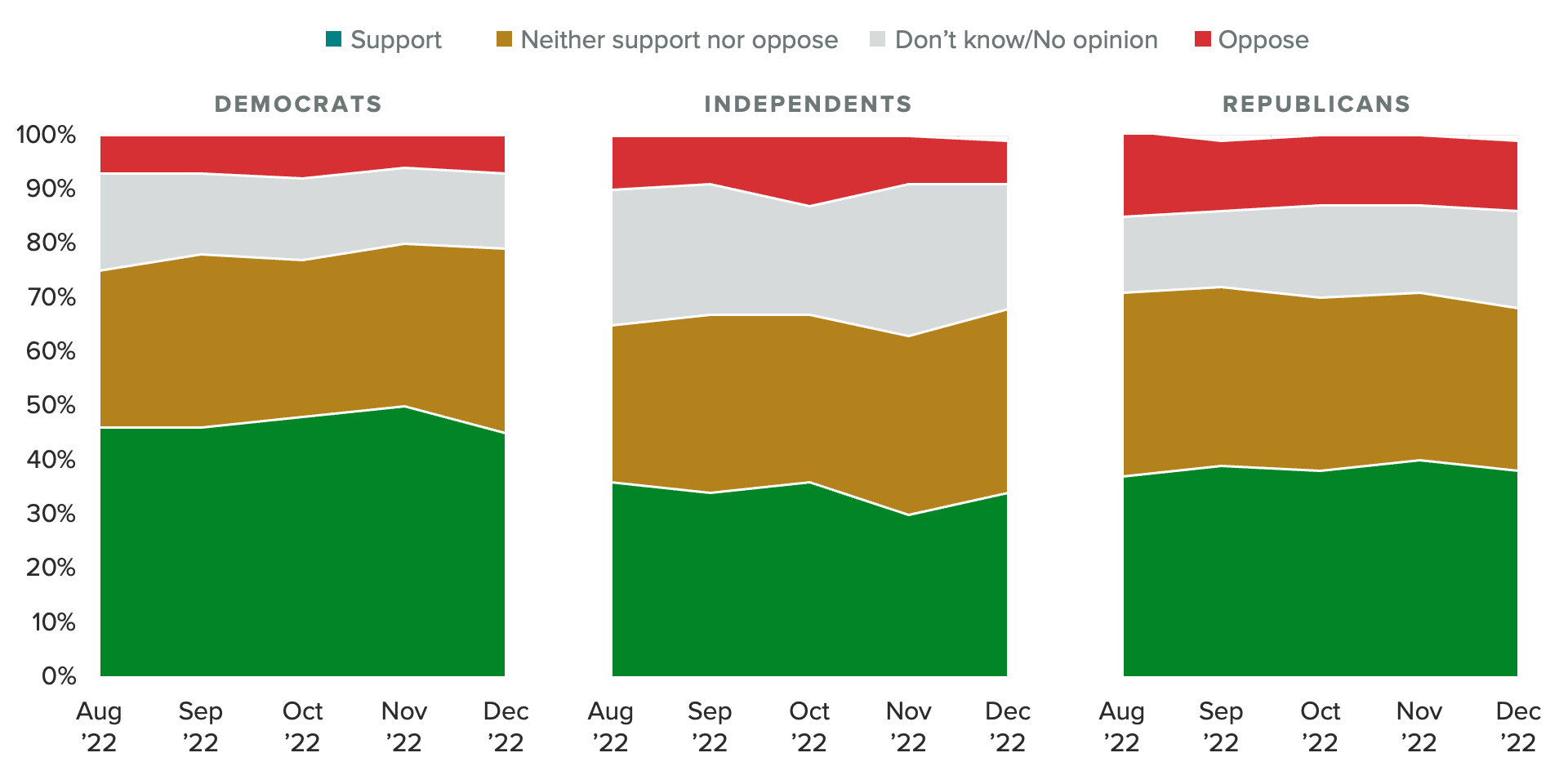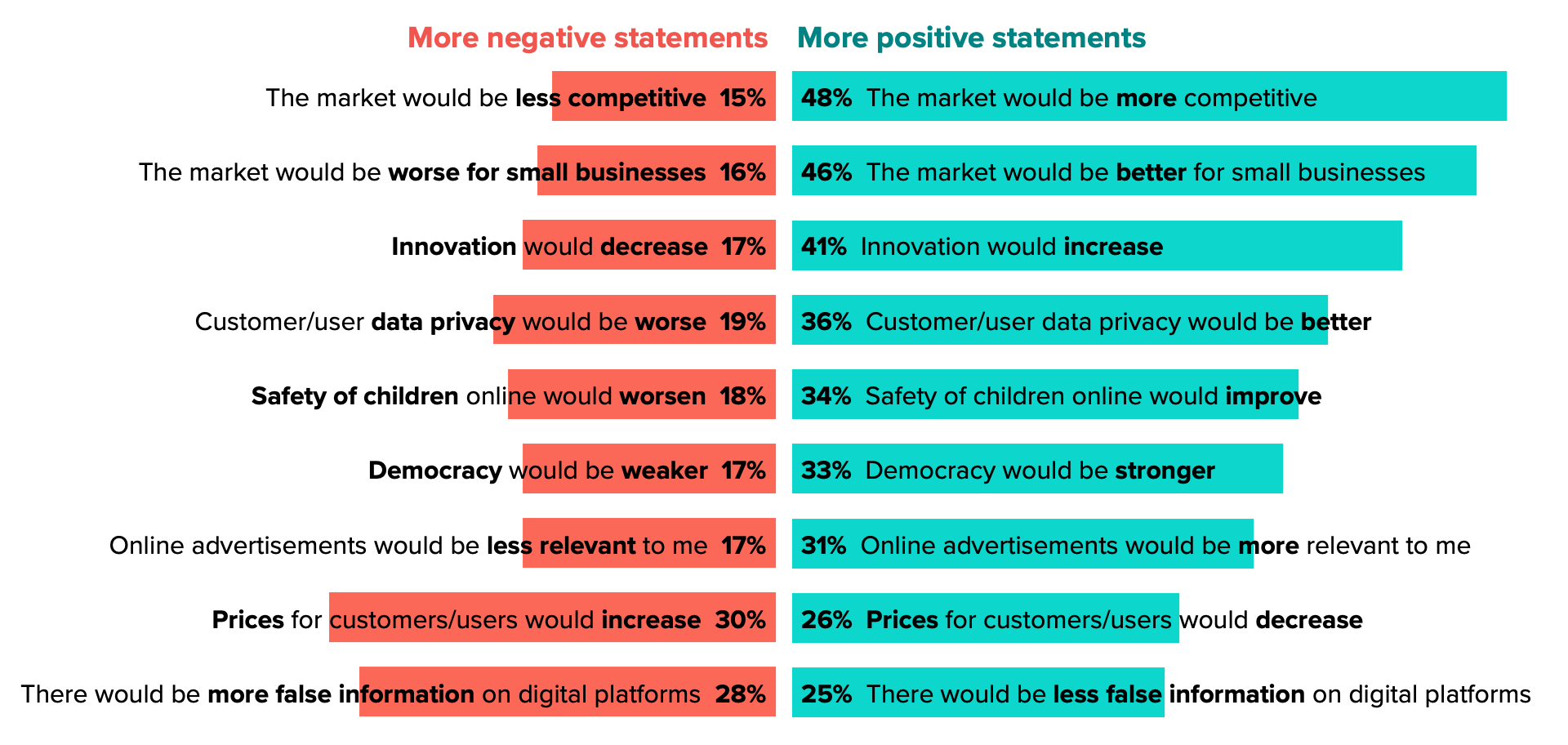This 12 months is shaping up to be a person described by problems for important know-how corporations as the sector specials with economic pressures rooted in inflation, substantial curiosity premiums, layoffs and decreased investor self-assurance. Tech leaders will also have to grapple with an additional challenge: a powerful shopper hunger for a lot more authorities regulation.
Shares of respondents who help or oppose additional governing administration regulation of important technology firms

Surveys executed monthly from August 2022 to January 2023 among at the very least 627 U.S. older people every, with unweighted margins of mistake of up to +/-4 share points.
Morning Seek the advice of monitoring of client attitudes towards regulating tech displays there is bipartisan support for additional regulation of the sector. Because at the very least August, far more men and women — Democrats and Republicans alike — support bigger federal government regulation of big technological innovation firms than oppose it. This web help notably rose amid Democrats in November following big Democratic wins in the Senate, as properly as Elon Musk’s Oct. 27 takeover of Twitter, which experienced a important polarizing influence on the brand.
While regulation of precise industries generally comes about guiding the scenes in silos, popular aid for regulation can give legislators and regulatory bodies the additional political capital they will need to get regulation over the finish line. In particular given the recent increase to the Democrats’ Senate the vast majority, an administration eager on reining in the impact of Major Tech, a prepared Federal Trade Commission beneath Chair Lina Khan and a Supreme Court obstacle to tech’s immunity in regard to person-generated content, it looks inevitable that the industry’s functioning environment will improve incredibly quickly.


People keep beneficial views of the tech sector, but say companies have too considerably electrical power
The public’s considerations encompassing Massive Tech are not a knee-jerk response to the politicization of the sector, nor are they relevant to no matter whether they have a favourable or detrimental impact of it. In point, most persons admire major technological know-how providers. Sixty-two percent of U.S. older people have a favorable effect of significant tech corporations, like 67{2c093b5d81185d1561e39fad83afc6c9d2e12fb4cca7fd1d7fb448d4d1554397} of Democrats and 61{2c093b5d81185d1561e39fad83afc6c9d2e12fb4cca7fd1d7fb448d4d1554397} of Republicans. Most grownups (54{2c093b5d81185d1561e39fad83afc6c9d2e12fb4cca7fd1d7fb448d4d1554397}) also agree the industry’s ideal times keep on being forward.
Respondents were being requested if they believe major know-how organizations have far too a great deal electric power
Survey done Dec. 27, 2022-Jan. 1, 2023, amid a consultant sample of 2,202 U.S. grownups, with an unweighted margin of error of +/-2 share factors. Figures could not include up to 100{2c093b5d81185d1561e39fad83afc6c9d2e12fb4cca7fd1d7fb448d4d1554397} owing to rounding.
As an alternative, the wish for regulation is rooted in the notion that main technological know-how firms have much too a great deal energy. About two-thirds of Democrats and Republicans agree with this statement, and agreement is robust even among tech’s most stalwart supporters: Gen Zers and millennials.


Individuals say breaking up main tech companies would be good for competitors, modest businesses and innovation
Customers see gains in limiting the scope of key technological innovation organizations. They are far more possible than not to agree that breaking up significant tech companies into smaller types would make the market much more competitive, be greater for modest businesses and increase innovation. Several of consumers’ thoughts on the implications of reining in the sizing of these corporations align with the regulatory aims of legislators, the FTC and other bodies.
Share of respondents who agreed with each individual of the subsequent statements:

Survey carried out Dec. 27, 2022-Jan. 1, 2023, among a agent sample of 2,202 U.S. older people, with an unweighted margin of error of +/-2 percentage factors. “No change” responses are not demonstrated.
Formally and understandably, main technology corporations have responded to the numerous regulatory proposals they confront with question more than their efficacy in resolving the complications they declare to handle. Pretty much speaking, they have now set the gears in movement to abide by them.
The European Union’s rigid legal guidelines and restrictions governing details collection and opposition signify that multinational tech providers have an incentive to established unified principles across their platforms, instead than differ guidelines by industry depending on nearby legal guidelines and laws. Even ahead of California’s Purchaser Privacy Act went into impact, tech was abiding by Europe’s General Knowledge Safety Regulation, usually identified as GDPR.
In actuality, there may well be no one particular far more eager for a closing clarification of the procedures than the tech sector by itself.